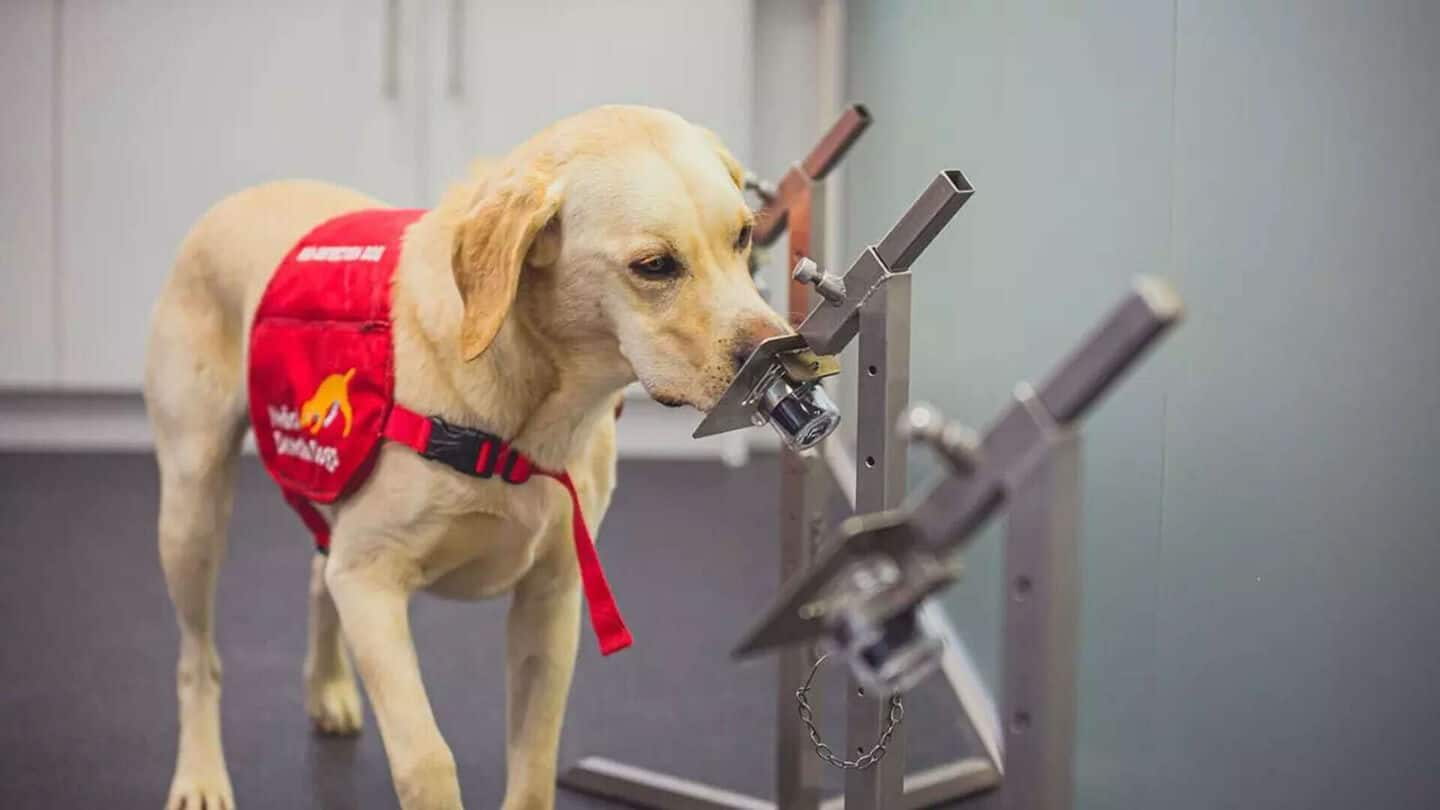
Trained dogs can detect Parkinson's with high accuracy
What's the story
A recent study has shown that trained dogs can accurately detect Parkinson's disease, offering a glimmer of hope for early diagnosis. The research highlights the potential of these animals in identifying the condition from skin samples with remarkable precision. Currently, there are no definitive early diagnostic tests for Parkinson's, making this discovery particularly significant.
Biological markers
Dogs could help identify biological markers
The findings from this study have given scientists hope as they can help identify the biological markers that dogs are able to detect, according to Dogster.com. This could lead to improved tests and timely care for patients. The research suggests that these animals can pick up on symptoms potentially years before a formal diagnosis is made, which could revolutionize how we approach this progressive neurological disorder.
Disease details
More about Parkinson's disease and its diagnosis
Parkinson's is a progressive neurological disorder characterized by symptoms like stiffness, tremors, balance problems, and slow movement. Though there's no definitive test for diagnosing this condition yet, identifying the biological markers that dogs can sense could be instrumental. Symptoms can first appear as much as 20 years before they become persistent enough for a clear diagnosis. An early detection test could give patients and doctors a significant advantage in managing the disease.
Training process
How dogs were trained for Parkinson's detection
The study, published in The Journal of Parkinson's Disease, involved a double-blind study with trained dogs. Seborrheic dermatitis, a skin condition caused by excess sebum production from glands, is one of the early signs of Parkinson's. Researchers hypothesized that dogs could be trained to detect this extra sebum in skin samples due to its distinctive smell.
Detection success
Characterizing dogs' accuracy in detecting the disease
In the study, professional trainers taught a group of dogs to detect Parkinson's from skin samples. Out of 10 dogs that started training, only two completed the rigorous process. After their training, these animals were presented with a series of skin samples, one possibly containing Parkinson's. The double-blind study ensured that neither trainers nor researchers influenced their detection capabilities. Ultimately, the dogs achieved an impressive 98% accuracy rate in identifying Parkinson's disease from skin samples.